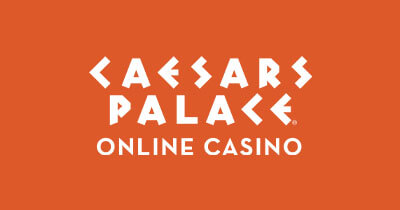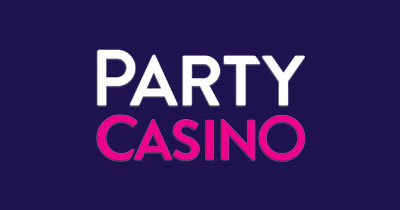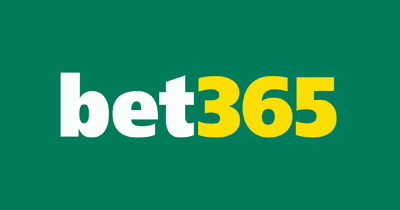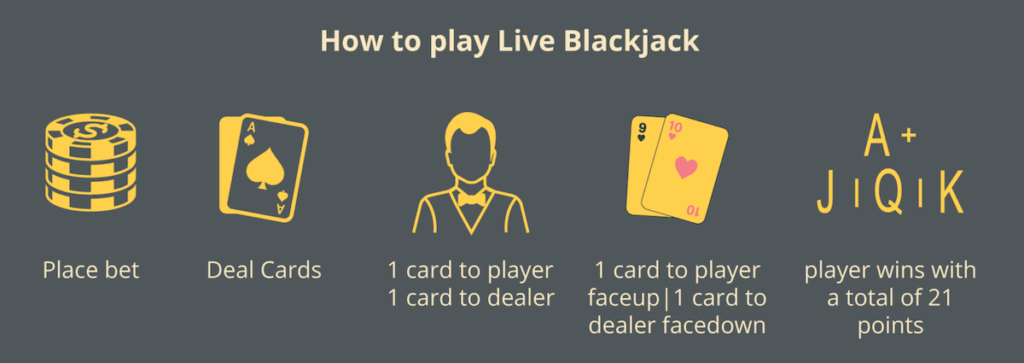by Steve Bourie Learn more about the author read more »
Introduction
Blackjack is the most popular table game in any U.S. casino and one of the reasons for its enduring popularity is the fact that the game has a reputation of being “beatable.” Naturally, the thought of being able to beat casinos at their own game has driven many players to spend countless hours studying basic strategy charts in the hope that they’ll learn how to play their hands properly and be able to win consistently.
Unfortunately, even when playing perfect basic strategy, the average player will still be playing at a disadvantage. Yes, those players will have some sessions where they get lucky and win, but in the long run the odds will catch up with them and they will lose money.
The reality of the situation is that only an experienced card counter can be a long-term winner and, even though the counter should eventually come out with a profit, there are likely to be many losing sessions along the way.
To help lessen the inherent risks in the game, many card counters have found it advantageous to play on teams. By pooling their money they have a bigger bankroll to work with and they can also reduce the volatility of the game by playing at more than one table at a time. Additionally, by having a team they can get in many more hours of play than they would be able to do if they were playing alone.
One of the most successful card counting teams in the world is run by Tommy Hyland. I first saw Hyland about four years ago on the CBS TV show “48 Hours.” They did a segment on card counters and, through the use of a hidden camera, Hyland was shown being ejected from a major Las Vegas Strip casino by a pit boss who recognized him as a counter.
I must admit that I was intrigued by the video footage and through the years I continued to hear from various sources about Hyland’s success with his card counting teams. I thought an interview with Hyland would be interesting and, through some mutual friends, I eventually got to meet him. He agreed to the interview and the following conversation took place in Las Vegas in early 2003.
The Interview
When did you first get involved in blackjack ?
It was 1979. I was going to school in Ohio and my roommate and I were both interested in gambling. We happened to be in a mall one day and we saw Revere’s book “Playing Blackjack as a Business.” We got it and read it and then we started practicing. We started going to Atlantic City once in a while and it kind of went from there. I basically started playing full-time in April 1979.
Did you make money right away when you first started?
Pretty much. I didn’t have very much money to start with. I think I had $1,000 or $2,000 but the casinos were offering early surrender, which was a rule that gave you an advantage off the top. After about four or five months I built up my bankroll to $4,000. What really got me going though, was after I taught a friend of mine to play also.
He had a few thousand dollars and we were playing separately, but then we met these other two card counters who were playing small stakes also in Atlantic City and that’s how we really got rolling. We each put up $4,000, so now we were playing off of a $16,000 bankroll and we started winning immediately. Way better than we should have and I guess after about a month or so of play, we built the $16,000 up to $60,000. We got really lucky. Then in December 1979 we won a fair amount of money during the famous card counting experiment where the casinos let known card counters play for about two weeks. We won quite a lot during that period.
Was Ken Uston playing at that time?
Yes. At that time there were two casinos open – Resorts and Caesars. We decided to play at Resorts and his group was playing at Caesars so we didn’t see that much of him but we would see him occasionally.
Was he a well known card counter at the time?
Yes. When I saw him playing by then, he was in the newspapers, on TV, and the radio all the time. He was the most famous card counter.
Did he know you guys?
Not really, we were playing real small compared to how he was playing, but eventually I got to know him. I probably had lunch or dinner with him five times and talked with him on the phone a few times, stuff like that.
There are some stories about Uston saying that he really wasn’t as successful as he professed to be. Do you have any comment on that?
I don’t have any firsthand knowledge whether he was a good player. I do know he was a heavy drinker and had some drug problems also.
He died of a drug overdose?
Supposedly. He died in France, you know possible complications from drugs, but I also heard it was a heart attack.
He was certainly a likeable guy, very charismatic. You know a lot of card counters were down on him, saying the games would be a lot better if it wasn’t for him. I have the opposite view. I liked the fact that he would sue the casinos, he would go before these gaming commissions and try to win the right for counters to play. I kind of liked that. He wasn’t letting the casinos push him around. I think if it wasn’t for him, the casinos would have been more abusive than they have been toward counters.
After your initial success there with your four-man team, then what did you do?
Well, two of our guys – Doug and Dave – bought Wong’s “Blackjack in Asia” book which talked about some games in Asia that had great rules and no heat (scrutiny from the pit personnel), so they decided to go off to Asia.
I think by this time I had between $50,000 and $100,000 and I thought I was the richest guy in the world even though I was only a 23-year-old kid. I decided to train some more of my friends at the golf course to play. I would put up the money and they would get a percentage of what they won. I trained one or two and we did really well. Luckily, I picked some good guys and they worked out well. Then, things just snowballed unbelievably. Eventually, the team got a little bit out of control.
I would have somebody calling me or asking me to teach them how to play at least once a week. I had a hard time saying no and ultimately, things got a little disorganized. We probably had some slippage (skimming, sloppy play) as a result of that. At this time we had about 30 or 40 people on the team.
You were bankrolling 30 or 40 people?
I was the main investor, but these people would win and they would invest some of their winnings back in the bankroll, and I think we also got some outside people to invest – parents or relatives. It was an evolving thing.
When you say these other people would “invest” does that mean you needed more money for your bankroll? Your initial bankroll wasn’t big enough?
Well, we wanted to bet high. There were two main teams around back then: Ken Uston’s and the Czech team, a bunch of guys from Czechoslovakia and we were kind of in awe at how high they were betting. We were trying to win money and also get a bankroll to bet as high as they were.
How high would they bet?
They were betting the table maximum at a very small advantage (1/2 of one percent). We wanted to be able to do that too because we had read the books which said that the more you bet the higher your hourly win rate would be.
And the table max was $1,000?
During the experiment it was $1,000 but then they lowered it to $500.
Okay, so you had some success, you expanded, and then it wound up being like 30 or 40 people on your team. What happened next?
What happened was it got a little unwieldy with all these people. Then Atlantic City took out early surrender and that’s when the game became a lot harder to beat. You had to be more skilled and more disciplined. I think what happened was that we had our first losing bankroll. We took a little break and some people quit or went off to play on their own. Four or five of us joined up with three other guys that were playing mostly in Vegas.
One of these guys was from Princeton and another guy was from Michigan University. They were real smart guys and we started playing using these advanced techniques, mainly shuffle tracking. There were a lot of real juicy shuffles here in Las Vegas and also in Atlantic City.
What year was this?
This would have been about 1982.
So you formed another team. Did you ever play by yourself?
Not really. Maybe a few months here and there, but I’ve always pretty much been with a group or a team.
Why do you like teams as opposed to doing it on your own?
There are a lot of reasons that teams are good. Obviously, there are some negatives but I think the positives far outweigh the negatives. The main advantage of having a team is that it really smooths out the fluctuations. I mean, if you play by yourself, it’s hard to get enough hours to assure a win. You could play for a year or so, play perfectly, and still be behind. If you have a six or seven man team that’s virtually impossible. The other thing is that you can bet a lot higher by pooling your money. If five people have $100,000 you can bet as if you all had $500,000 and that’s a huge advantage. There’s also a sense of camaraderie and team spirit. I’ve been fortunate to play with some really creative people. You sit around and bounce different ideas around and you come up with some really good ideas that you wouldn’t have come up with on your own.
So when you came out here and joined up with the other guys to form a new team how did you do?
We did really well. Like I said, we were mostly playing shuffles. We were playing a lot in Vegas and a little bit in Atlantic City. We were also traveling around to the Caribbean and in general it went really well. We made quite a bit of money.
How long did that last?
I’m really bad at chronology, but this was 1982 to probably 1990. I still play with some of those same guys today.
It was basically the same team for eight years?
No. It was a bit of a mix because what happened is we would have these little projects where we would have big players come in, so it wasn’t like a stagnant thing. There were people constantly in and out and we would actually have 30 or 40 people but a lot of them were part-time.
Some casinos would be offering a really good game and we would look for different ways to exploit it. A lot of these guys had friends and we had this big pool of people that we would have to teach how to do everything. We might have one particular game that we could exploit and we would teach some new guy everything he had to do to beat it. Or, maybe some guy had a good look and a good act, so we would just teach him basic strategy and we could give signals to do all the rest of the stuff. We had a whole host of projects and different schemes to exploit some weakness in a particular casino. We had people coming in and out; somebody would play for us for one year and we would never see them again. We had guys from Australia, China, everywhere. It was an exciting time with a lot of adventure.
What happened to the team in 1990?
Well, what happened was, as we made some pretty good money these other guys lost a lot of their interest in blackjack and they wanted to do other things. One guy went off to do horse racing in Hong Kong. He’s famous for that in the gambling circles. Another guy got into the stock market. Some of the guys dabbled in poker for a year or two.
It’s really been kind of an ongoing thing, but basically we’re still doing the same stuff today. Blackjack is a little tougher right now but some of those original people are still invested in blackjack even though they are doing other things. I have some people who have played for 15 to 20 years and still play pretty much full-time and then I have some others that play part-time. I guess since 1982, it’s never like one team has ended and a new one started, it’s kind of been an evolving thing with people leaving and coming back.
So, since you first started back in 1979, you’ve always continued to have teams in one form or another?
Right.
Where are your teams now? Do you play throughout the United States? Is everyone together? Or, do they spread out all over the place?
We don’t play as much in Vegas and Atlantic City as we used to. Those games are not as good as elsewhere in the country, so we’re spread out all over the country. You know, a lot of people when they hear “blackjack team,” they think you all go to the same casino together and you sit on the same table together and play, but that’s not what we do. I mean we do have some games with big players and call people in, but we mainly just pool our money and we all go our various ways and we keep track of the results. Then, at a certain agreed upon date, we split the profits. We split the proceeds about every six months.
So each player plays for six months?
Well, the bankroll lasts for six months and then we split it up and start another one. We’ve done it that way for several years. We used to play to a “money target which meant that we played until we won a certain amount of money. There are advantages and disadvantages of doing it both ways.
If you hit your “money target” before the six months was up, would you stop playing?
That’s what I’m saying, we did it two different ways. We used to have a money target and not have a time limit. We would just play until we won that amount of money and that has its advantages too. Everybody’s striving for a goal, everybody’s trying to hit the target, but it has a lot of disadvantages too. You never know how much money you are going to have and when you’ll have it. So, lately we’ve been doing it by the time target. Play for six months and then investors get a share, players get a share, stuff like that.
Do you always make money?
No. We’ve had some devastating bankrolls where you lose for quite a while. Basically, we’ve been pretty successful, but we’ve had some rough times where you have a nice chunk of money and you thought you’d never have to worry again and then, suddenly, you’re almost broke.
How many people are on your team?
About 15. A lot of these are part-time and there are about five or six people that play full-time. I also make some temporary arrangements with people that I know are good players. I have a couple guys coming out for the Super Bowl and they may not play again until the next Super Bowl. We just have a certain arrangement for that weekend.
But mostly your team is spread out all over the country?
Right.
Do you play yourself?
Yeah, I still play. I play a fair amount. I’m basically addicted to golf, so if it wasn’t for golf I would play a lot more, but I try and make myself play at least once a week.
Here in Vegas?
Whenever I’m in a location where I can play.
Do they let you play in Vegas?
I can still play some places in Vegas. I don’t play very long and I don’t bet super high, but I play a few hours a week.
What’s your maximum bet?
A lot of times when I go into a casino I’ll say to myself “I think I’ll bet small today. I’ll only go up to $500 or $600 and try not to get any attention. “But, what invariably happens is the count gets real high and I just blast it out there. I usually don’t bet more than $2,000 on a hand.
Doesn’t that draw a lot of attention?
Yeah, it does and I usually can’t stay for the next shoe but most times I’ll finish that one shoe.
You use the high/low method?
Yes, I’ve always used the high/low. I’ve never used any other count.
What would you say has been the biggest change in blackjack since your early years?
There’s been a lot of change. I guess the biggest change would be the proliferation of the casinos. Instead of having two states with blackjack, at least half the states have blackjack now. But that’s been countered by the fact that the casinos are getting smarter. The spread of information is a huge change. That’s been bad for us. We haven’t benefitted as much from technology as the casinos have. It used to be if you got barred in a casino in Vegas, maybe a week later all the casinos in Vegas would have your picture or something like that. Now, if you get barred somewhere, numerous casinos throughout the world may have your picture within minutes. So that’s been a big change. The games are also definitely worse, but there are more games so it’s still possible to make a nice living from blackjack.
Do you have any funny stories about your blackjack exploits?
One that comes to mind is that I trained a lot of people to play and one summer I had a son of my parents’ longtime friends. He was in college and had heard about blackjack and the success we had and decided he would like to play for the summer.
He came to Atlantic City and he picked it up real fast. He was a smart guy. He played in Atlantic City and he did well. Then he had a break during the college year and decided he’d like to make a trip to Vegas. He was all excited about the trip but it was a little scary to him because he had heard all these stories about how they might do something to you if you won a lot of money and they thought you were a card counter. So, naturally, he was a little apprehensive.
What year was this?
This would have been in the early 80s. He went to Vegas and he was playing at the old Sands Casino and he couldn’t lose a hand. He had all these chips on the table and was getting real excited about how much he was winning. Then he noticed he was getting some attention from the pit, so he figured this would be a good time to take all his chips and take a break to go count them. So, he goes into the bathroom, he has all these chips in his pockets and he’s pulling them out and counting them when, all of a sudden, there’s a loud knock on the stall door. He opens the door and looks out and sees a big security guard there staring at him while he has his chips and money all over the place and the guard goes, “What are you doing?” And he says, “…sorry, I was winning a lot of money and I was just counting it to just see how I was doing.” And the guy says, “In the ladies room?”
Was he playing by himself or he was on the team?
He was out there playing on the team. Like I say, what we do basically is give somebody money to go play and we just let them loose, they go play wherever they want to, or they may have a particular casino in mind to go play.
Isn’t it a problem if you go back to a casino all the time and you’re winning? Because they always track you and eventually they will know that you are counting cards.
Right. The more you win, the less welcome you are going to be at casinos. So, that does happen. Today, there are so many casinos, you can use different names. You may play a casino, have a big win, not go back there for a year or so and then play as a different guy the next time. We do that all the time. We used to use disguises a lot.
Didn’t you once disguise yourself as Santa Claus?
Yeah. Back in Atlantic City before Ken Uston won his case, they used to have this three-step process for barring counters. The first time they caught you, or if they just thought you were a card counter, they read you a card. We used to call this step one and basically the card would just say that you are no longer allowed to play blackjack, but you were allowed to play any other casino game.
Now, if they caught that same person a second time, they would tell them you are no longer allowed on the premises. Then, if that same person came back again and they discovered them, they would then arrest them for trespassing.
What happened was that, as you played more and more, you would get the step one card read to you at every casino but, then you would just sneak back in, or try and look different or play a different shift.
We thought it was outrageous that you could get kicked out of a casino just for knowing how to play. We felt we were on the right side of this and we decided we were just going to play. We didn’t care what card they read to us and a lot of times we would get arrested for trespassing.
It was Christmas Eve and I decided I would dress up as Santa Claus even though I had already been read step two in this particular casino but they wouldn’t know who it was, so they wouldn’t be able to arrest me for trespassing. I was just playing and everybody was coming up to me…”Hey Santa Claus, how’re you doing?”
Everybody thought it was funny, but then all of a sudden the count went up and I was betting real big. At that time we used to do these things we called “raids” where we would send everybody in there. We would have 10 or 15 people go in the same casino at the same time, figuring if they’re reading the card to one guy, somebody else would be able to get some bets out there. So, we had a whole bunch of people in there and one of us heard the pit guy on the phone…”Yeah I got a guy down here on one table betting double thousands, I think I remember him, and then there’s this guy over here betting purple chips, and over here is Santa Claus going crazy.” It was kind of funny but they were good sports about it. They told me no more blackjack and they didn’t try to do anything else. They saw the humor in it.
What do you see in the future for blackjack? Obviously, it’s a cat and mouse game between you and the casinos. Do you think you’ll always be able to do this? Or, do you think the casinos will come up with things to thwart you, such as continuous shuffling machines?
Luckily for us, the continuous shuffling machines don’t seem to be too popular with the general public. A lot of the attraction of blackjack is that pretty much everybody who gambles in a casino has heard that blackjack is the only game you can beat. So, the casinos would be taking a risk by putting in a totally unbeatable game with all continuous shufflers. They just don’t seem too popular.
What I have noticed is that a lot casinos will put them in on their smaller-limit tables but they won’t put them on their higher-limit tables because most high rollers don’t want to play them. Also, it seems to me they are now taking as many out as they are putting in. I don’t think they are a major threat and I don’t think that they are going to spread to where almost everybody is going to have them.
People like the idea of having a hot shoe and going on a streak. To have a never ending shoe doesn’t seem to be that popular with the general public. Even though, if you’re not counting, it shouldn’t really matter, but the public’s perception is that it does matter and I don’t think the public will accept them.
I think for the next decade or so there is certainly money to be made in blackjack. If you move around and you are disciplined, it is still possible to make a good living playing blackjack. Although it is still shocking to me that casinos are able to treat skilled players the way they do.
I remember saying to a guy back in the early 80s, when I was being forced into a back room, “you won’t be able to do this in a few years. The courts will stop this.” It’s obviously a violation of civil rights and it just amazes me – well it doesn’t really amaze me – but it’s sad that the casinos are so powerful and they can get away with the things they do. After Ken Uston won his court case in New Jersey, I figured all the states eventually would stop treating skilled players as criminals, but that hasn’t been the case. We have to fight for every inch. The casinos still take a lot of liberties with what they do and they treat us terribly. It just never seemed fair that they can offer a game to the public, say what the rules are, and then abuse people that just play by those rules.
It’s a shame that the casinos don’t have the same attitude towards professional blackjack players as they do towards professional sports bettors. I bet some sports and the sports books are incredibly gracious and nice whether I win or lose. Most of the personnel are really friendly and seem to enjoy matching wits with all of their customers, no matter what their skill level.
Right now Missouri and Atlantic City are the only two states with laws preventing casinos from barring card counters?
Right but it’s a little fuzzy elsewhere. I’m not sure exactly what the law is in Illinois or Indiana, but it’s likely they aren’t allowed to do it there either. Plus, there are lots of jurisdictions all over the world that aren’t allowed to bar a card counter. Like some of the provinces in Canada and Australia which have a lot of laws to protect counters.
Well, from the casino’s perspective, they are in business to make money. Do you think they should really let you play if you can beat them?
Absolutely. They have the choice as to whether or not they want to offer the game. Or, they could offer only continuous shuffle blackjack, or they could change the rules to make naturals (two-card 21s) pay even money, or pay six-to-five, like they’re doing now in some places. These measures would virtually prevent anyone from getting an edge at blackjack.
They should be able to put up whatever game they want, but they should have to smile and deal; and that should be the end of it. They shouldn’t be able to only deal to drunks or people that aren’t too sharp. Every other game is like that – it’s only blackjack where they take people in the back room, attempt to intimidate them and even arrest them.
They’re still doing that nowadays?
Oh yeah. I don’t mean to say that it happens all the time. Most places are pretty nice but it still happens. There are lawsuits all the time for people getting roughed up. It just kind of depends on the place and the particular person in the casino that takes a dislike to you, or how much you win.
I haven’t heard many stories about backrooming people but I know I’ve heard stories where counters were rousted from their room in the middle of the night and kicked out.
Absolutely. That happened to me this year. It happens all the time. The other thing they do now, with these plastic card keys, is they change the code on the computer, so when you go up to your room after a long night of playing you find that you’re locked out. You go down to the front desk and the clerk will say, “oh, just a minute sir, there seems to be a problem” and all of a sudden security will be there to escort you up to your room to kick you out. Surely that’s not legal, but you don’t really have much recourse. None of the lawyers want to take these cases because as long you don’t get beat up or something, you don’t have any real damages.
The casinos do a lot of things that are either in a gray area or they are definitely not allowed to do, but you don’t have much recourse it seems to me. The casinos are very powerful in Nevada. Most of the horror stories are heard from Nevada, but there are some from other places. That’s the one thing I have to give Ken Uston credit for. You never hear any of those stories in Atlantic City. That’s the one nice thing. Whenever you’re in Atlantic City, playing by the rules, you don’t have to worry about some sort of nonsense going on.
And that’s because they’re not allowed to bar counters in Atlantic City?
Right.
Some players believe that Uston ruined blackjack in Atlantic City with his lawsuits. They say you can’t get a decent game because of him but you actually have the opposite opinion?
Yeah, I’m a firm believer that what he did was good. I’d rather play a little worse game and not be worried about having some problem in the middle of the night.
When it happened to you, were you in the room?
Yes, it was in Mississippi and I was in the room. Actually, when I made my last play at the blackjack table I saw some guy kind looking at me funny, but I thought I was just getting a little paranoid, so I left the casino and went to a movie.
When I came back to my room, I was sitting there reading, it was around 11 at night, and the phone rang. I picked it up and the person on the other end hung up. I wondered what that was about and then about 15 minutes later there were five security guards at my door telling me that I was being asked to leave immediately. They marched me through the casino with my suitcase and they were surrounding me. I had to go cash out all my chips. It was embarrassing
Were you there as a guest of the casino?
Yeah.
I would imagine if you were paying for the room they couldn’t do that?
You would think so, but I’m sure they would. I would have been happy to pay but I never tried that. I’m sure they would say no, you’re getting kicked out. I don’t think that would have worked. A lot of times they will renege when you’re there as a guest of the casino. They will come to your room, march you down to the front desk and make you pay some exorbitant rate before they will let you leave. That happens fairly often.
Do you have any advice for the average blackjack player?
I think probably the best advice I could give them, is that it’s not as hard to learn to play blackjack as most people think. The most common misconception is that you have to be some sort of math whiz or memory expert in order to do it.






















